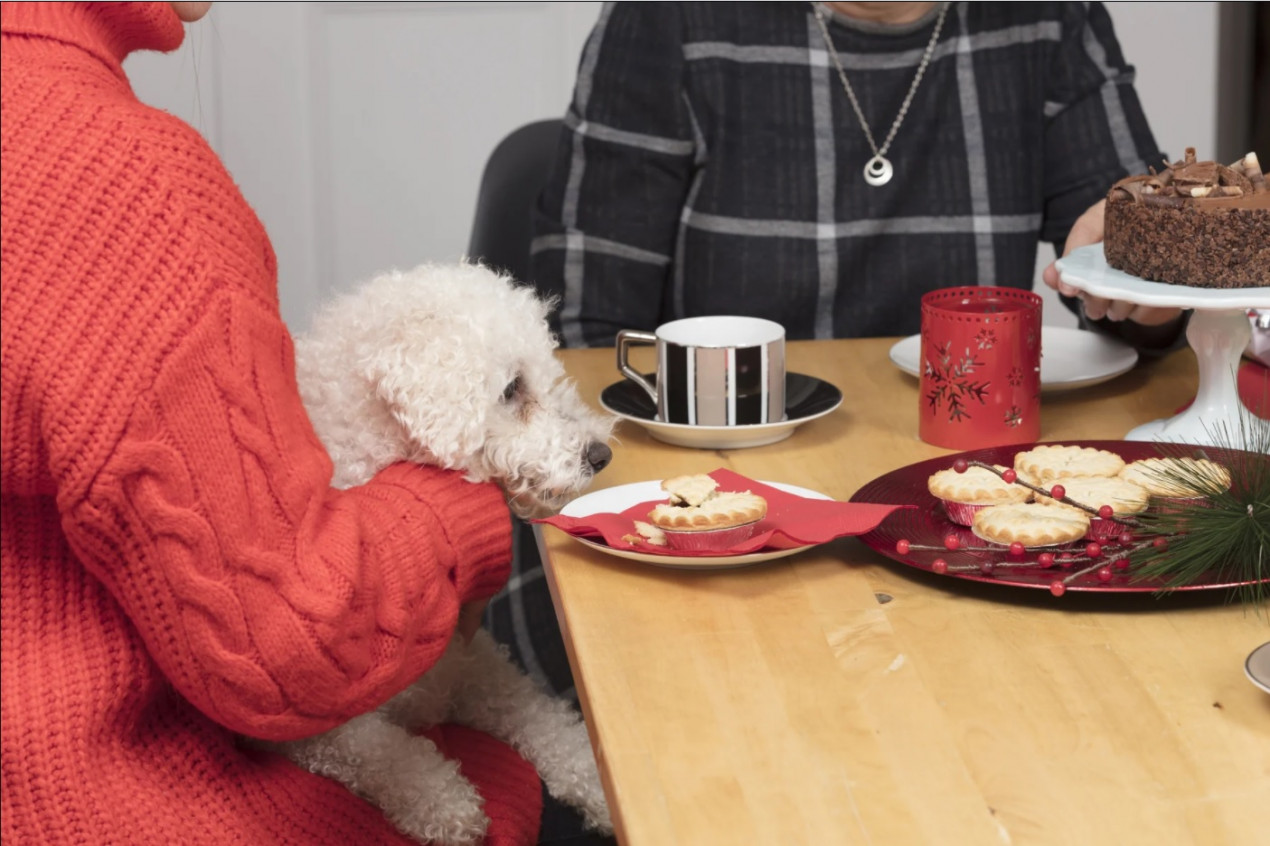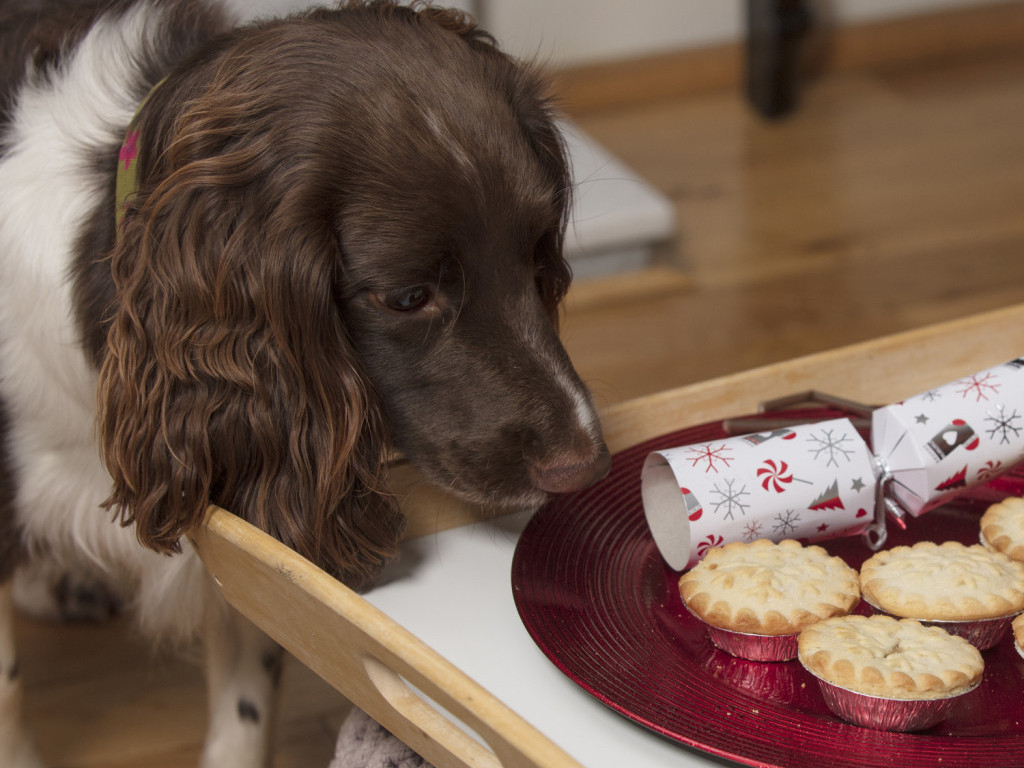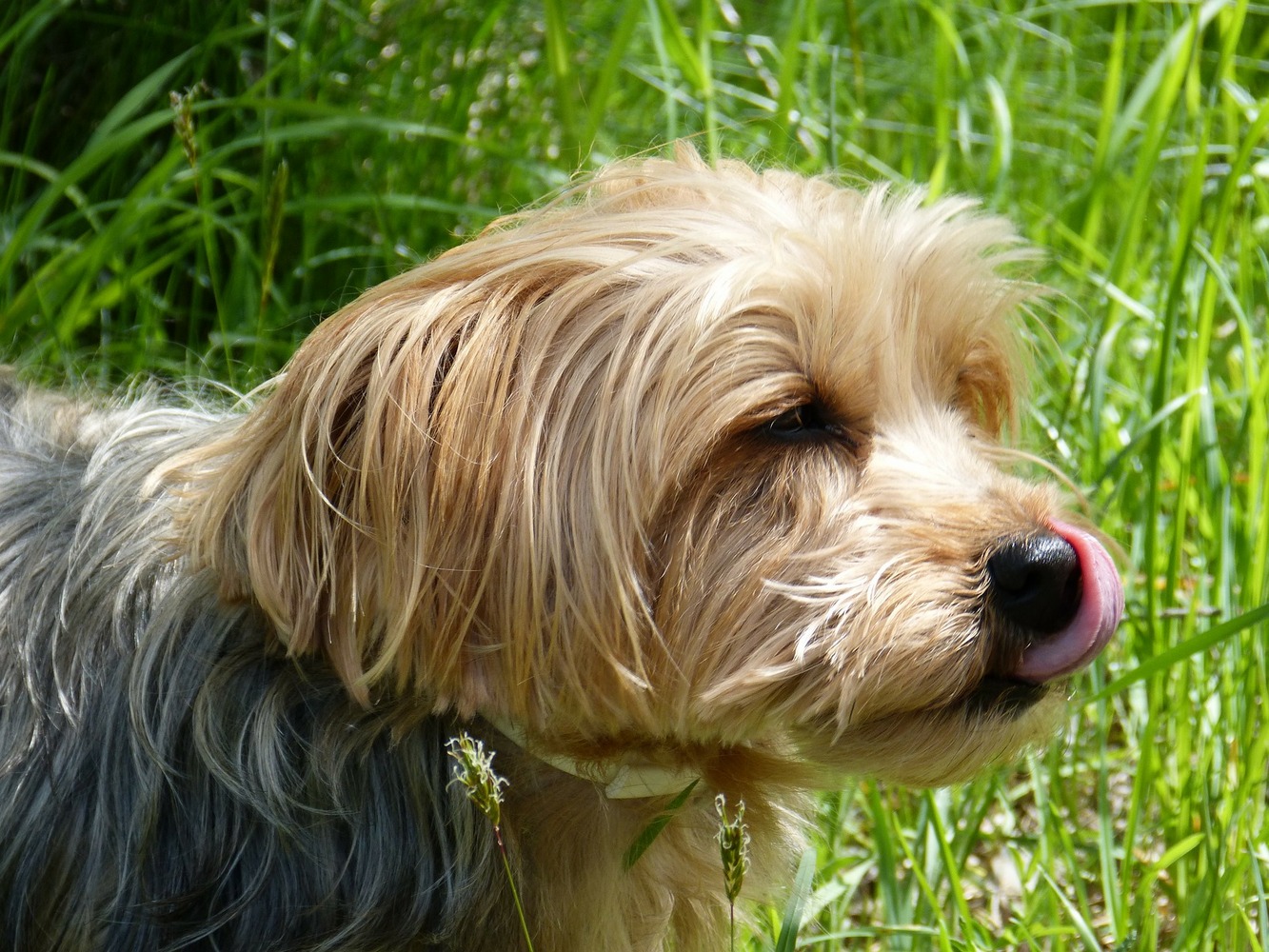
Can dogs eat grapes?
Grapes and raisins are toxic to dogs and can lead to acute kidney failure or even death. While all forms of grapes are bad for dogs, it’s thought the dried versions of the fruits are more likely to cause severe symptoms if eaten by your dog. It’s not known for sure exactly which substance or chemicals in grapes causes poisoning in dogs (though recent research suggests it may be tartaric acid), but even a very small number of grapes, raisins, sultanas or currants can cause severe problems for some. Our vets have seen emergency cases when just one grape has been eaten but in other cases, a handful may cause no symptoms. That’s why it’s best to always best err on the side of caution and contact your vet or your nearest emergency vet if your dog has eaten a grape.
Extra caution should be taken with foods containing raisins, currants (dried fruit of dark grapes) and sultanas (dried fruit of white grapes). This includes foods such as mince pies hot cross buns fruit cake.
My dog ate one grape, will he be ok?
Unfortunately, there’s no clear link between the size of your dog and the amount eaten when determining the seriousness of grape poisoning in dogs, so it’s best not to feed any grapes or raisins to your pet. That’s also why we have not created a dog raisin toxicity calculator.
If you’re concerned, contact your vet, or out of hours, your nearest Vets Now for advice.

My dog ate raisins, what should I do?
Remove the source of the fruit and call your vet or, out of hours, your nearest Vets Now as they will be in the best position to offer advice. It’s likely your vet will ask you to bring your dog into the clinic.
If this is the case take a sample of whatever they’ve eaten or, if possible, the wrapper or box the food containing the fruits came in. Do not try to give your dog salt water or induce vomiting.
Signs of grape poisoning in dogs
Normally symptoms start showing between six and 12 hours after your dog has eaten grapes or raisins, with kidney failure developing within 24 to 72 hours of exposure. But these may not take effect for several days. In the most serious cases, the fruits can also cause sudden kidney failure.
Things to look out for include:
- vomiting
- diarrhoea (possibly with blood present)
- abnormal drinking or urination
- increased drooling
- lack of appetite
Other signs include weakness or wobbliness when walking, lethargy and blood in your dog’s urine.
Why are grapes bad for dogs?
Ingestion of the fruits of Vitis Vinifera (grapes, raisins, sultanas and currants) is a common intoxication in dogs and can lead to acute renal failure and death. Whilst the toxic substance in grapes and raisins has remained unconfirmed, recent research has indicated it might be a substance called tartaric acid. More research is needed before we can confidently provide a toxic dose, not least because the tartaric acid content of grapes and raisins is highly variable. We hope in the future to have a greater understanding of risk, but, currently, experts agree that there is no “safe” dose of grapes and raisins.
How to make a dog vomit after eating grapes?
Vets will often induce vomiting in dogs who have eaten something toxic. This is because it’s usually the simplest way to clear out their system. But dog owners should never attempt to make their dogs sick themselves without consulting with a vet. In some cases, inducing sickness can be dangerous.
You might also be interested in:
My dog ate raisins and is fine, is it a myth that grapes and raisins are bad for dogs?
It is not a myth that grapes and raisins are bad for dogs. The confusion stems from the fact that some dogs can eat several grapes and suffer no ill-effects, while others become ill after only eating one or two.
No specific chemical in grapes has ever been isolated as being poisonous to dogs. However, a study by our own emergency vets into grape and raisin poisoning in dogs revealed that, of 606 cases presenting to our emergency clinics, one in eight (12%) presented with clinical signs such as vomiting or diarrhoea.
My dog ate grapes but seems fine, what should I do?
Monitor your dog closely for up to 24 hours after ingestion. If they show any of the symptoms listed below, contact your vet or, out of hours, your nearest Vets Now pet emergency clinic or 24/7 hospital.
- Vomiting or diarrhoea
- Rapid breathing
- Restlessness or hyperactivity
- Tremors or incoordination
- Increased heart rate
- Seizures

You might also be interested in:
What's the prognosis for grape and raisin poisoning?
Dogs treated for grape and raisin toxicity generally have a very high chance of survival if treatment is prompt and early and there’s been no kidney damage. However, if treatment is delayed and there are signs of kidney failure your dog may suffer lifelong health issues or, in the most severe cases, lose their life.
How will my vet treat grape or raisin toxicity?
There’s no direct antidote for grape or raisin toxicity so the key to a successful outcome is early treatment. It’s likely the vet will place your dog on intravenous fluids (a drip) to support renal function and for rehydration. They may also administer a drug to make your dog sick and/or give them a treatment called activated charcoal which helps to clear away toxins left in the intestines.
Typically, the vet will also check your dog’s kidney enzymes and perform an ultrasound scan to look at the kidneys. If these tests indicate kidney damage, then more intensive treatment will be required.
How to prevent poisoning from grapes or raisins
The simplest advice is to be aware of any products containing grapes, raisins, sultanas and currants and to store foods containing these ingredients well out of reach of your dog. If you’re baking at home, particularly with young children, handle potentially toxic ingredients with care and do not leave children alone with your dogs in the kitchen. Our emergency vets have treated scores of dogs who have eaten entire packets of dried fruit straight from shopping bags, so be sure to put your shopping away as soon as you get home.

